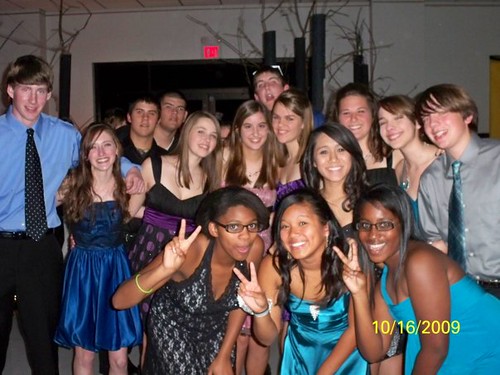Cook, Robin.
Shock. New York: G.P. Putnam's Sons, 2001. Print. (336 pages)
Deborah
Cochrane and Joanna
Meissner have spent many years at Harvard, and the only thing left they have to do to gain
their doctorates is to complete their thesis papers. The two long to have the money to travel to Venice for a year to work in tranquility,while also having a bit of fun, but they have no idea how to attain the funds. They soon learn that the
Wingate Fertility Clinic is offering $45,000 for egg donation, and they convince themselves to donate for Italy money. When Joanna and Deborah return to the U.S., they become obsessed with finding out what
happened to their eggs, but when they call the
Wingate Clinic to ask, they are informed that all records are confidential and that they are not allowed the information they seek. Seeking answers, the two women assume new identities, change their looks and accept jobs working at the clinic. Their plan is to hack into the computer systems and get the information they want and then to disappear, but they soon find out that there are some strange things going on at the clinic. They decided to investigate what is actually going on, a decision that could put them in grave danger.
A huge theme of this book is human cloning, and while I knew that cloning is possible I never really thought about the technology behind it or the viability of human cloning. The book goes into great detail about the exact process of creating a clone, from the first step through the growth and
development of the creature. I really did find myself truly astonished while reading of the human clones in the novel, and I thought back to research I did about cloning when I read
Brave New World. I learned that human cloning is thought to be nearly inevitable, and that really the only thing holding it back is the debate of morals and ethics.
Hannah, Kristin.
True Colors. New York: St. Martin's, 2009. Print. (491 pages)
The Grey sisters, after their mother's death, banded together, becoming the best of friends. Their cold father Henry cares not about his children, only for the land of his ancestors and his
impeccable reputation. Winona, the oldest, is the smartest, a bookworm, who endlessly searches for her father's approval. She grows up to be the best lawyer in town, hoping that her reputation will spark a sense of pride in her father. Aurora is the middle sister and the family peacemaker. She tries to keep everyone happy, even when she is miserable and hides her own pain. Vivi Ann is the youngest and the jewel of the family. A naive dreamer, capable of immeasurable love, she is doted on by everyone she comes in contact with. Vivi Ann's life is perfect, at least until a stranger arrives in town. When Vivi Ann falls in love, the man Winona pines for is crushed, Aurora's marriage starts falling apart, and a horrible crime shatters their tiny town, the bonds that have held the sisters together for years become broken and threaten to never mend themselves. Everything changes as the sisters become pitted
against one another in unimaginable ways. Their loyalties are tested and they learn all about
having enemies, forgiveness, and what it means to really be a family.
Throughout the book I tried to decide which sister I was most like, but I ended up not being able to choose. Like Winona, I am a bookworm who studies hard in order to please my parents. Like Aurora, I try to keep the peace between my siblings. Whenever a fight breaks out, I am the one standing to the side trying to get everyone to calm down. I tend to try to make others happy even if I am feeling down or angry. I am a hopeless dreamer like Vivi Ann. I am constantly wishing for something more, for something to fulfill my life, for a future of happiness. But even though I have things in common with each, I am also unlike all of them. Unlike Winona, I am hard pressed to keep a secret. She never tells anyone anything, and my problem is keeping my mouth shut. Secrets are just too good to keep.(I can do it though, if I have to, if I'm asked to.) Aurora keeps everyone else happy but hides her own anger and misery. I am the complete opposite, because if I am mad EVERYONE knows it. Apparently, I have this angry face that I make when I am mad. Also, because I can't keep a secret, I end up telling everyone that I am mad and why. Vivi Ann, though big-hearted and lovable, is weak. Her joy and hope is easily crushed and she finds it hard to make a bounce back. I, on the contrary, am a fighter. I try hard to always stay strong, not just for myself, but for those around me.
Hosseini,
Khaled.
The Kite Runner. New York:
Riverhead, 2003. Print. (372 pages)
Amir has a happy childhood in Afghanistan, always having fun and playing with his closest childhood friend,
Hassan, whose face makes up the entirety of Amir's first memory and who also happens to be the son of Amir's father's servant.
Hassan always protects
Amir, warning him of danger, accepting blame, and taking hits from the neighborhood bullies. But even though
Hassan is subjected to much insult and injury on Amir's behalf, his loyalty never wavers. That is until he is hurt in the most unimaginable way: rape, witnessed, yet not stopped by
Amir himself. Though
Amir can never be certain, he suspects that
Hassan knew he saw what happened, because after that awful day their relationship is never quite the same, and eventually
Hassan and his father leave Amir's household and the two boys never meet again.
Amir grows up, moves to America and marries, and is one day called by an old, dying friend from his homeland. This friend tells him of
Hassan's death and the capture of his young son
Sohrab by the Taliban, and as a last request of
Amir, he asks that
Amir do all he can to save the boy. So as a final apology to
Hassan's memory,
Amir veers away from playing the role of the saved to paying tribute to the one who used to constantly save him.
The setting of the story was slightly shocking to me. Set in Afghanistan, the difference between the way I live and the way
Amir lived was huge. People there used sticks with notches carved into them as credit cards, the children were out of school for months during the cold,snowy season, and the culture was unlike anything I've ever experienced. Later in the novel, after the Taliban took over rule of the country, Amir's old hometown was almost in ruins. People were executed in the street every day, and women had virtually no rights. Knowing that people actually had to live in conditions like that, that a person could walk out of their house at night to see someone being shot, that a woman had to wear a
burqa that covered her from head to toe if she wished to leave her house was foreign to me, and as I read the book I became very thankful for the environment I live in. I realized how fortunate I am to live in a pretty safe country, how fortunate I am to not have to worry daily about death and terror. Above all, I was thankful that I live in a country where, as a woman, I have equal
opportunity to the men around me, and that I am given all the same rights.

